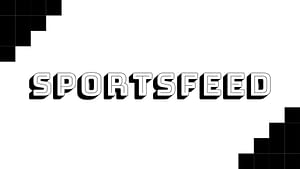3 Questions with Claire Wang: Unlocking the Secrets of Memory Sports
When you think of sports, your mind probably jumps to basketball, soccer, or maybe even golf. But what about a sport that’s all about the brain? Enter the fascinating world of memory sports, where competitors push their mental limits to memorize and recall information at lightning speed. Claire Wang, a PhD student at MIT, is not only a researcher but also a memory athlete who’s making waves in this unique field. In a recent interview, Wang shared her insights into the science behind memory training and how it’s reshaping the way we think about mental performance.
What Are Memory Sports?
Memory sports might not involve physical feats like slam dunks or touchdowns, but they’re no less impressive. Competitors in this field participate in events like memorizing decks of cards, long strings of numbers, or even entire poems. It’s a mental marathon that requires intense focus, strategy, and practice. Wang, who has been competing in memory sports for years, is a prime example of how dedication to this craft can yield incredible results.
In the interview, Wang explained that memory sports are not just about raw talent. “It’s a skill that anyone can learn,” she said. “With the right techniques and consistent practice, you can train your brain to perform at a much higher level.” This perspective is backed by her own journey, which combines academic research with competitive memory training.
The Science Behind Memory Training
As a PhD student in neuroscience, Wang is uniquely positioned to explore the intersection of science and sport. Her research focuses on understanding how the brain processes and stores information, which directly informs her approach to memory training. She uses techniques like the method of loci, a strategy that involves associating information with specific locations in a mental “memory palace.”
“The method of loci is one of the most effective tools for memory athletes,” Wang said. “It leverages the brain’s natural ability to remember spatial information, making it easier to recall complex data.” This technique has been used for centuries, dating back to ancient Greek and Roman orators, but it’s now being refined and studied in modern neuroscience labs.
Why Memory Sports Matter
So, why should we care about memory sports? For Wang, the answer is clear: it’s not just about competition; it’s about unlocking human potential. “Memory training has applications far beyond the sports arena,” she said. “It can improve academic performance, enhance professional skills, and even delay cognitive decline in older adults.”
Wang’s work is part of a growing movement to bring memory training into the mainstream. She believes that by understanding the science behind memory, we can develop better tools and techniques to help people of all ages improve their mental performance. It’s a mission that combines her passion for research with her love of competition, making her a true pioneer in the field.
Key Takeaways
- Memory sports involve competitive events like memorizing numbers, cards, or texts.
- Techniques like the method of loci can significantly enhance memory performance.
- Memory training has practical applications in education, work, and healthcare.
As memory sports continue to gain popularity, athletes like Claire Wang are proving that the brain is just as capable of greatness as the body. Whether you’re a student looking to ace your exams or a professional aiming to stay sharp, there’s a lot to learn from the world of memory sports. So, the next time you hear about a memory competition, don’t dismiss it as a niche activity. Instead, think of it as a glimpse into the future of human potential.
To read the full interview with Claire Wang, visit the original article on MIT News.
Originally Written by: MIT News Office





















